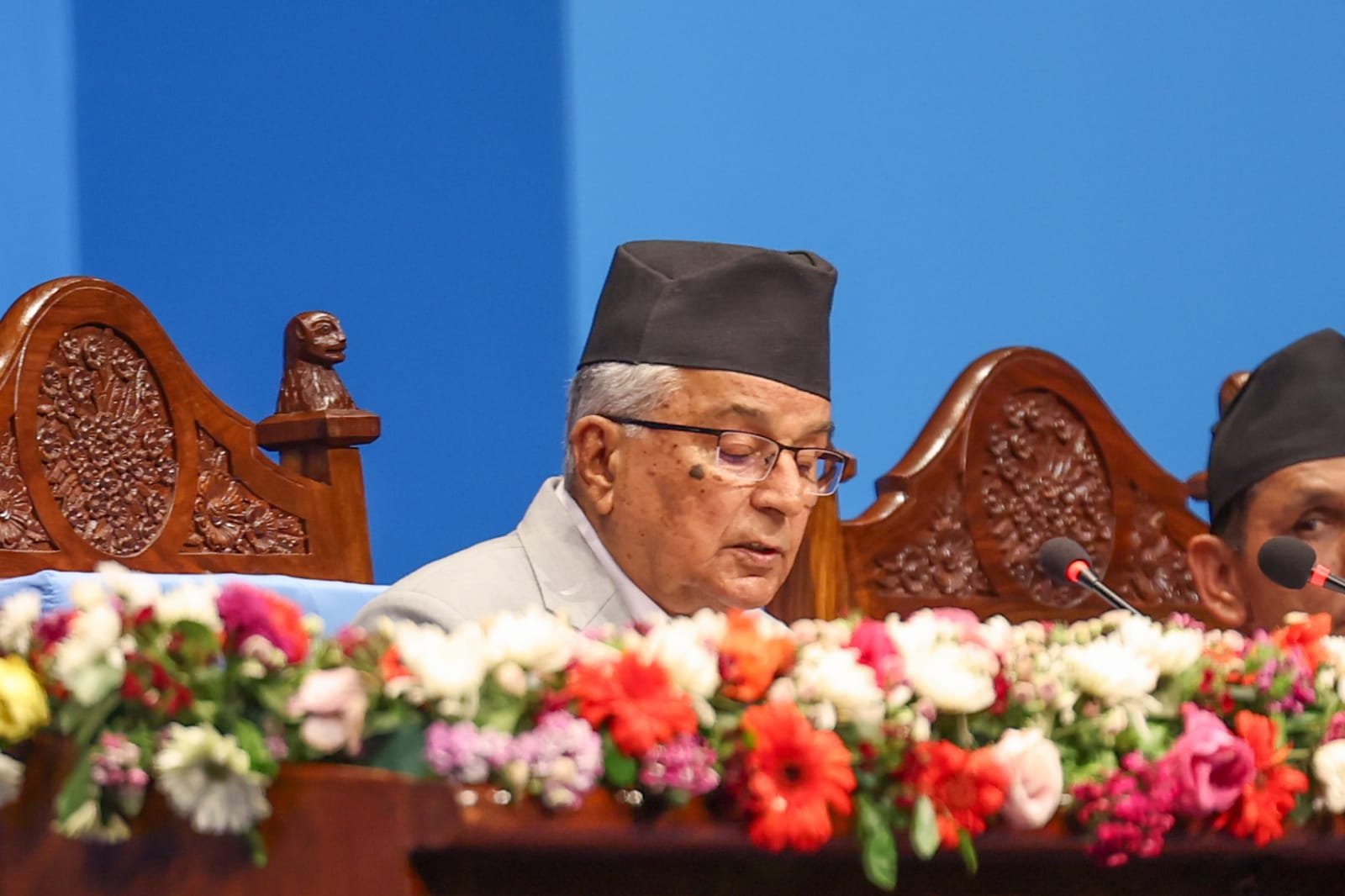Nepal Unveils Ambitious Reforms for Fiscal Year 2082/83
Nepal Unveils FY 2082/83 Policy and Programme: Key Priorities in Economy, Digitalization, and Green Energy

President Paudel presents Nepal’s FY 2082/83 policy agenda during joint session of Federal Parliament in Kathmandu.
Kathmandu: President Ramchandra Paudel presented the Government of Nepal’s policy and programme for the fiscal year 2082/83 (2025/26) during a joint session of Parliament. This year’s national strategy focuses on economic transformation, digital infrastructure development, green energy expansion, and institutional reform.
Infrastructure Projects to Be Reassessed and Prioritised
The government will review all ongoing and proposed infrastructure projects. Projects without realistic completion timelines will be scrapped or suspended. Priority will go to high-impact projects that can be completed within the current parliamentary term, with resource-based planning guiding decisions.
“Infrastructure schemes from previous governments will be reprioritised,” said President Paudel.
Tax System Reform to Boost Industry and Investment
A major tax restructuring is on the agenda. The government will implement a modern, digital-friendly revenue system to encourage industrialisation, attract foreign investment, and improve transparency. Tax administration will be digitised to create a more efficient, taxpayer-friendly environment.
Digital Banking and Cashless Economy
Nepal will establish a digital bank and promote a cashless economy. The policy encourages the use of the Nagarik App for expanded faceless public services. Legal and institutional reforms will support the development of digital finance and boost financial inclusion.
Energy Security and Green Energy Initiatives
To tackle seasonal power shortages, Nepal will invest in reservoir-based hydropower projects. The government will mobilise remittance funds for energy development under the People’s Hydropower Programme.
Other key green initiatives include:
-
Green hydrogen production for commercial use.
-
Promotion of electric appliances in homes, farms, and industries.
-
Bioethanol blending with petrol to reduce fossil fuel dependency.
Environmental and Forestry Reforms
The Chure Conservation Plan will be restructured and upgraded to a National Conservation Project. Nepal will implement Euro 6 emission standards for vehicles to control air pollution. Forest-based production will be expanded to create jobs and enhance domestic supply chains.
Education and Health Sector Reform
The School Education Bill will be passed during this session, aiming for universal access to basic education by 2084 BS. The health insurance programme will be restructured to integrate all subsidies and support services, ensuring long-term sustainability and wider coverage.
Additional Key Focus Areas:
-
Startups & Youth Entrepreneurship: A new youth-focused startup programme will support innovative business ideas and ecosystem development.
-
Governance & Anti-Corruption: The policy prioritises federalism, good governance, and justice system reform.
-
Climate Action: Nepal reaffirms its goal of achieving net-zero emissions by 2045 and will enhance watershed and land restoration.
-
Security Enhancement: Law enforcement agencies will be modernised, and border security strengthened.
-
Foreign Relations: Nepal will pursue balanced diplomacy, focusing on sovereignty, regional cooperation, and economic diplomacy.
President Paudel emphasized Nepal’s commitment to the federal democratic republic, economic resilience, and social inclusion.
Parliamentary Timeline
-
May 5–11: Deliberation on policies and programmes
-
May 14: Discussion on budget priorities begins
-
May 29: National budget for FY 2082/83 to be tabled, in line with constitutional provisions

Please login to leave a comment.
Login to Comment